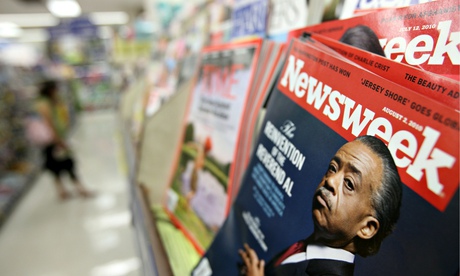
It's the big, nagging question that journalists obsess over. Should people pay for news on the web? Does free news website access mean booming audience figures or bust? Plus, emerging from the same forest as licence fee renewal time approaches: could the BBC survive behind a subscription wall? You can hear Andrew Neil and a team of experts hunt for answers at a special London Press Club/YouGov night in the British Library this Tuesday. But don't expect crisp conclusions. This is work in bemusing process.
Mike Darcey, head regent of Wapping, proclaims ever more vehemently that the hard, impervious paywalls prescribed for him by Rupertian edict "are the only sensible way" – and, conversely, that the free, non-subscription models espoused by the likes of the Mail and Guardian mean a short ride to Poverty Row. But anyone can change sides in this argument (and many do so frequently, particularly in America).
The Boston Globe has just dismantled its hard Wapping-style paywall and chosen a more flexible, metered model instead. The Dallas Morning News has knocked down its own purpose-built wall and opted for "an image-oriented, collage display". And, of course, John Paton, America's most eloquent apostle of "digital first", has decided that his Journal Register chain must try to raise subscription cash after all.
These examples are just a small illustration of the widespread uncertainty that prevails – and of a range of possible courses that seems to grow wider by the month. Here's Newsweek, once a mighty US weekly, opening up again under new ownership. But, crucially, who do they get to run their digital subscriptions? A four-year-old outfit, Piano Media from Slovakia, that has swiftly become Europe's biggest portal moneymaker, used by 25 major publishers and now with its first foothold in the States.
Combine Piano's expertise with an even newer competitor, Blendle in Amsterdam, and the table of possibilities is overflowing. If you're an entire newspaper and magazine industry – in Slovakia, Poland, the Netherlands – you can build a single-access paywall around everything, with a range of inner walls that can provide individual opportunities: to which Blendle, in particular, adds social media connections as a self-proclaimed "iTunes of journalism".
Put such operations together, and there's a new answer to the problem of why newspaper print sales have fallen so steeply over the last decade: because, especially in Britain, purchasing of a second or third daily paper each day – or each week – has declined to vanishing point. Price escalation has ruined that game; and so, digitally, has the necessity to register for a whole variety of services using a whole variety of passwords. But now that's a problem solved online, at least at a cost. Technology and ingenuity pound along.
Should people pay for news on the web? It sounds a no-brainer when YouGov asks. Somebody has to pay. And, of course, people who want precious, specific information will always find ways to pay for it somehow. The difficulty – for bog-standard BBC programmes sustained by bog-standard licence fees and bog-standard court cases, just as much as bog-standard print news coverage – is what happens to the rest.
Subscription technocrats can cook up any dish that suits. The BBC iPlayer could mount a clone of Netflix in a trice. Papers can fine-tune and constantly find fresh paths. But the basic, inescapable human problem remains. It's still up to you, guv.

